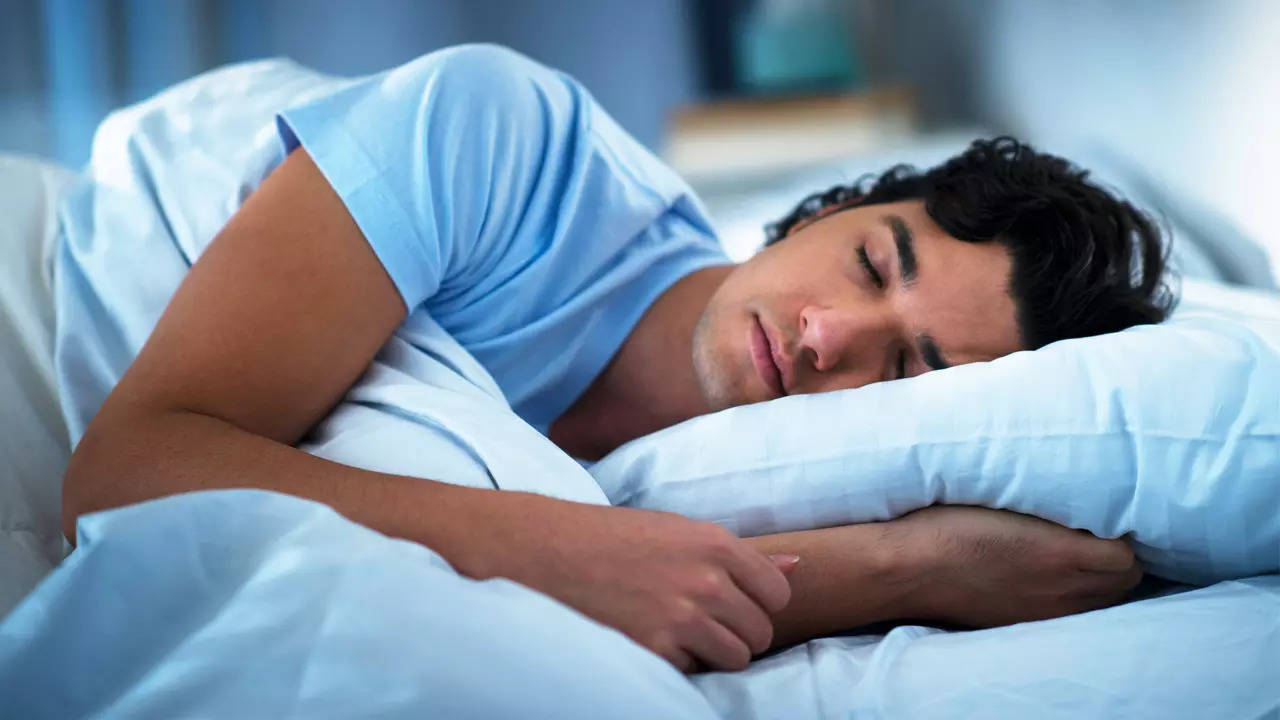Nearly a billion people around the world suffer from
sleep apnea
, a common disorder in which breathing stops and starts frequently while sleeping. And that includes around 104 million Indians. The condition is usually treated with continuous positive airway pressure or CPAP machines that come with masks blowing pressurised air through the nose and throat while sleeping.
It’s not the most comfortable way to get a good night’s rest.
But now, some breakthroughs offer hope. In December, medics from University College London Hospitals NHS foundation trust (UCLH) fitted two patients with an app-controlled stimulator that zaps nerves in the tongue so that patients can breathe uninterrupted while sleeping. The implant called Genio was devised by medtech company Nyxoah.
Broadly, there are two kinds of sleep apnea —
obstructive sleep apnea
(OSA) and
central sleep apnea
(CSA). OSA is more common and happens when the throat muscles relax and block air flow into the lungs. This results in choking sounds, loud snoring and waking up frequently during the night. It has deadlier effects too, increasing risk of developing heart disease, stroke, diabetes and even cancer, and perhaps most important of all, car accidents, as such patients often fall asleep at the wheel. Chip implants like Genio are specifically for OSA, having four parts — neurostimulator, activation chip, charging unit and adhesive patches.
The neurostimulator is surgically inserted, and its electrodes are put in contact with the hypoglossal nerve which makes the tongue move. An external activation chip is attached under the chin at night with an adhesive patch. The chip stimulates the nerve while sleeping, which prevents the tongue from falling back and blocking the upper airway.
CSA happens when the brain doesn’t send proper signals to the diaphragm that controls breathing. The symptoms of both kinds overlap, including gasping for air while sleeping, insomnia, daytime sleepiness, headache in the morning and irritability. Allegheny Health Network, a healthcare company from Pennsylvania, has come up with the Remed implant, a pacemaker-like device specifically made for CSA patients.
“In severe cases, breathing may stop for up to 90 seconds, triggering the body’s fight-or-flight response, which then affects the cardiovascular system,” said Daniel Shade, sleep medicine specialist and director of the Allegheny Health Network Sleep Disorders Centre, in a press release.
The remed device sends small electrical currents to the diaphragm to stimulate normal breathing rhythms. A cardiac electrophysiologist implants the battery-powered device under the skin of the upper chest in a minimally invasive procedure. The first implant was done in Pittsburgh in Dec 2023. “This system has been clinically proven to improve a patient’s quality of life, reduce daytime sleepiness, and minimise disrupted breathing events,” Shade added.
In another development, the US Food and Drug Administration (FDA) recently approved the first drug to treat obstructive sleep apnea. It’s a weight-loss drug called Zepbound (tirzepatide) which, by helping people lose fat around the airway, reduces the number of times their breathing gets obstructed.
Agencies
I’m Manas Ranjan Sahoo: Founder of “Webtirety Software”. I’m a Full-time Software Professional and an aspiring entrepreneur, dedicated to growing this platform as large as possible. I love to Write Blogs on Software, Mobile applications, Web Technology, eCommerce, SEO, and about My experience with Life.



